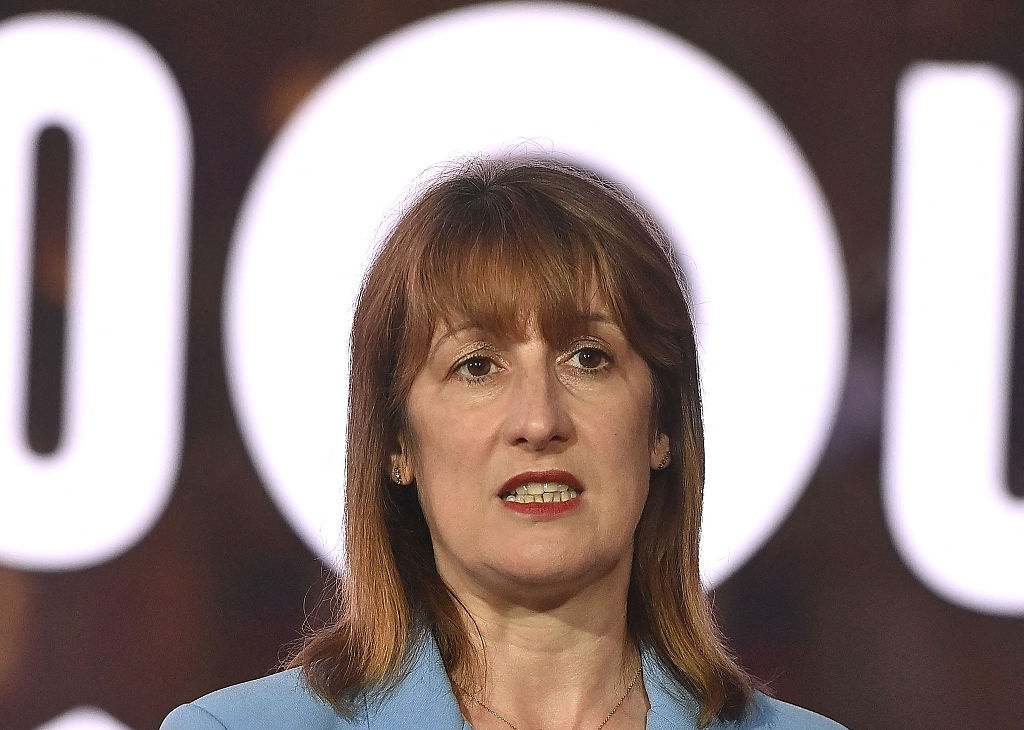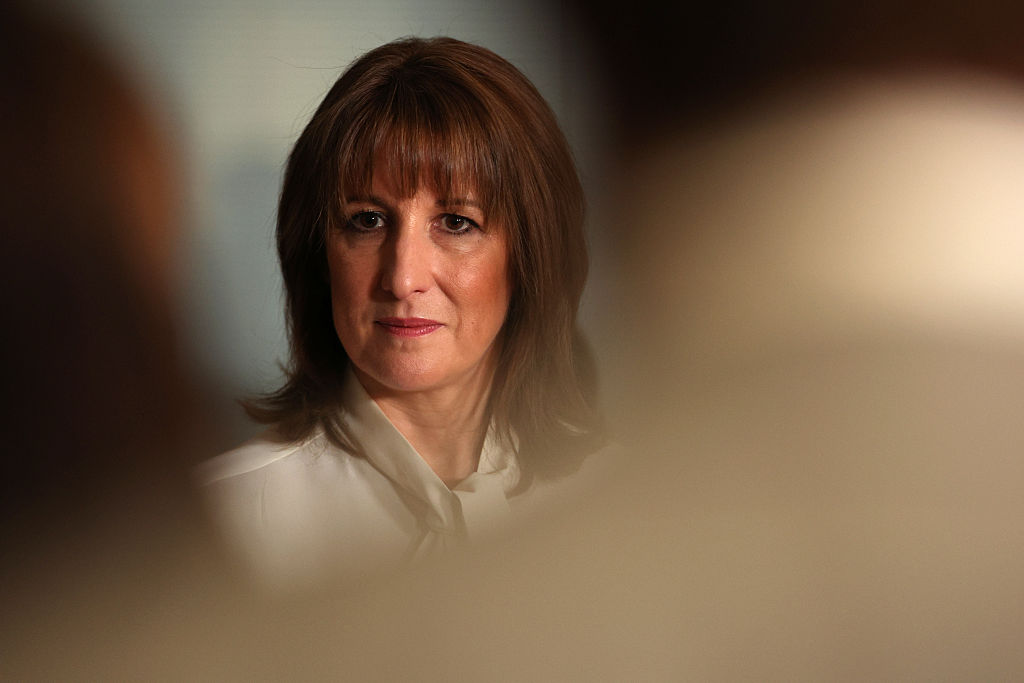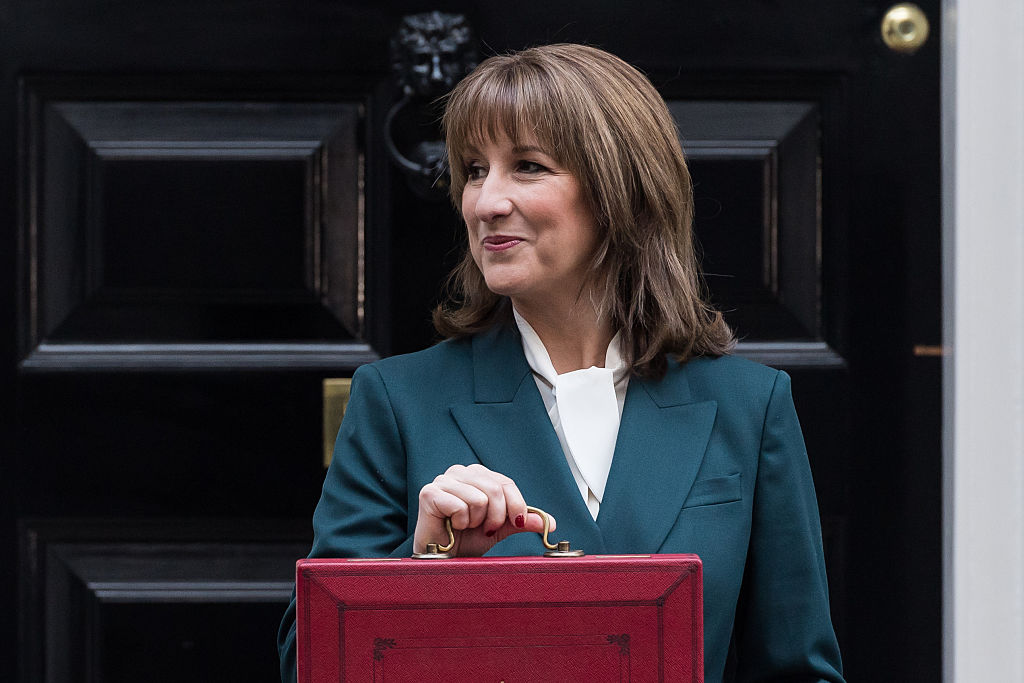Will Rachel Reeves slash cash ISA limit to £12,000?
Chancellor Rachel Reeves is said to be considering slashing the cash ISA allowance in the Autumn Budget but critics are warning against the idea. What could be announced, and what does it mean for you?

Laura Miller

Get the latest financial news, insights and expert analysis from our award-winning MoneyWeek team, to help you understand what really matters when it comes to your finances.
You are now subscribed
Your newsletter sign-up was successful
Want to add more newsletters?

Twice daily
MoneyWeek
Get the latest financial news, insights and expert analysis from our award-winning MoneyWeek team, to help you understand what really matters when it comes to your finances.

Four times a week
Look After My Bills
Sign up to our free money-saving newsletter, filled with the latest news and expert advice to help you find the best tips and deals for managing your bills. Start saving today!
Rachel Reeves is reportedly mulling a cut to the cash ISA annual allowance in a bid to encourage savers to put more of their money into the stock market.
The chancellor will deliver the Autumn Budget in the House of Commons on 26 November as she attempts to get the economy back on track.
Among some of the options she’s said to be looking at is a cutting of the cash ISA annual allowance. Currently, the overall ISA allowance is £20,000.
MoneyWeek
Subscribe to MoneyWeek today and get your first six magazine issues absolutely FREE

Sign up to Money Morning
Don't miss the latest investment and personal finances news, market analysis, plus money-saving tips with our free twice-daily newsletter
Don't miss the latest investment and personal finances news, market analysis, plus money-saving tips with our free twice-daily newsletter
Earlier rumours suggested it could be cut to as low as £4,000 but more recent leaks indicate the limit may be reduced to a more generous £12,000.
However, recent polling revealed a reduction in the allowance would be an unpopular move among Brits.
Cash ISAs are the most widely used type of ISA. In the 2023/24 tax year, 66% of all ISA contributions were to cash ISAs, bringing total cash ISA holdings to £360 billion, according to government figures.
Separate Bank of England data reveals £28.75 billion was deposited into cash ISAs between April and September, up from £28.59 billion over the same six months in 2024.
A recent report put forward at the Treasury Select Committee warned Reeves that not only would cutting the cash ISA allowance discourage more of an investment culture in the UK, it would hurt Brits in other ways.
“Building societies depend on cash ISA savings as a critical funding source for their mortgage lending. If this was reduced, it would mean a less competitive market for financial products and consequently higher prices for consumers,” the report said.
Dame Meg Hillier, chair of the Treasury Select Committee, said: “This is not the right time to cut the cash ISA limit. Instead, the Treasury should focus on ensuring that people are equipped with the necessary information and confidence to make informed investment decisions. Without this, I fear that the chancellor’s attempts to transform the UK’s investment culture simply will not deliver the change she seeks, instead hitting savers and mortgage borrowers.”
The Treasury also highlighted the government’s Leeds Reforms, announced in July, under which banks will send investment opportunities to savers with cash sitting in low-interest accounts for the first time in a bid to highlight the opportunities of investing for consumers who are able to do so.
Under current trends, moving £2,000 from these accounts to stocks and shares could make millions of people over £9,000 better off in 20 years’ time, the government said.
The latest cash ISA rumour is one of several potential reforms to ISAs that could be announced in the Budget.
Earlier this year, the chancellor was reportedly considering imposing a £4,000 or £5,000 annual limit for cash ISAs. Currently, you can save or invest a total of up to £20,000 per year across different ISAs, and you don’t have to pay tax on the interest or investment returns.
The chancellor told the BBC in May she is not looking at reducing the overall ISA limit of £20,000.
In March, Reeves said she was seeking to “get the balance right between cash and equities to earn better returns for savers” and “boost the culture of retail investment” in Britain.
The top cash ISA currently on the market pays 4.55% interest, but well-diversified investments have historically brought higher returns.
At a recent Investment Association dinner, City minister Lucy Rigby said: “Someone who put away £1,000 in a cash ISA every April since 1999 would now hold about £34,000. If they had instead invested in a stocks and shares ISA instead, they could now have around £83,000 – over twice as much.”
Revival of cash ISA limit plans “really disappointing”
Some critics have slammed the idea of cutting the cash ISA limit.
Andrew Gall, head of savings at the Building Societies Association (BSA), which represents 43 UK building societies and six credit unions, said it was “really disappointing that the chancellor seems only to be listening to the investment businesses who would benefit from the changes”.
Gall argued that cutting the cash ISA limit will undermine the “brilliant savings product”, make lending more expensive, and will make the ISA system more complex and expensive to administer.
"Starting to save is a crucial part of the journey to investing – undermining cash ISAs risks undermining the very investment culture that we should be trying to build on top of its strong foundations,” he said.
When rumours of a cash ISA limit first circulated earlier this year, the BSA warned building societies use cash ISA deposits to fund mortgages and said a reduction in how much can be saved in one could therefore make lending more expensive.
Kevin Mountford, co-founder of Raisin UK, believes a cut to the cash ISA limit would be a step in the wrong direction by the government.
He said: “At a time when more people than ever are paying tax on their savings interest, restricting access to tax-free cash savings could feel like a step backwards for ordinary households.”
In contrast, investing and trading platform IG said it supports a potential reduction in the cash ISA limit, arguing the product has “not only failed to improve people’s wealth but have steadily eroded it,” and adding that it is “completely incompatible with long-term wealth creation”.
Michael Healy, UK managing director at IG, said: “The chancellor is absolutely right to take aim at this outdated product – and she should go further by abolishing the cash ISA allowance altogether.
“We should not be incentivising or rewarding the hoarding of cash, particularly at a time when our stock market is teetering on the brink through lack of investment. Britain needs more people investing and more money directed towards growth, and abolishing the cash ISA is a sensible place to start.”
Just 12% of Brits are in favour of a reduction to the £20,000 cash ISA allowance, while 48% oppose the change, according to recent polling by AJ Bell.
Increases to income tax are also unpopular among Brits, with 48% saying they’re against rises.
Reeves had been reportedly weighing up raising income taxes but has now U-turned on the plans after receiving better-than-expected economic forecasts from the Office for Budget Responsibility (OBR).
Tom Selby, director of public policy, said: “With an increase to income tax rates now reportedly off the cards, voters will be wary of the raft of other potential tax-raising measures on the table ahead of the Budget.
“However, the fact a cash ISA cut comes in just as unpopular as a hike in income tax rates may give Reeves pause for thought on whether such a move is really a good idea.”
Reeves eyes stocks and shares ISA reform
On top of potential limits to the cash ISA allowance, the Financial Times reported the chancellor is also considering introducing a minimum UK shareholding requirement in the stocks and shares ISA.
If Reeves presses ahead with the proposal, British investors would effectively be forced to put a proportion of their investment portfolios into the UK stock market, eliminating the geographical freedom that is currently available in the stocks and shares ISA.
A requirement to invest a portion of ISA holdings in the UK would provide a boost to the UK stock market, and therefore help stimulate economic growth.
The plans are reminiscent of the previous Conservative government’s scrapped ‘Brit ISA’ plans, which would have allowed investment of an additional £5,000 annually in UK equities.
Reports indicate Reeves is also looking at other measures to direct more ISA holdings into the UK stock market, including a proposal to remove stamp duty from London-listed stocks held within ISAs.
When could a cash ISA limit be introduced?
As mentioned previously, if a reduction in the cash ISA limit is announced, it will likely be in the Autumn Budget.
The Budget is set to be delivered by Reeves in Parliament on 26 November at around 12:30pm. However, if a reform like this is pushed through, it's highly unlikely it will be implemented immediately.
Instead, the earliest a cash ISA limit is likely to be introduced is the start of the next tax year in April 2026.
Will I lose access to my cash already in an ISA?
It is extremely unlikely the government would make any changes to the ISA rules retrospectively. This means any cash savings you already have in an ISA are safe – the chancellor isn’t going to force you to move them into a stocks and shares ISA, or steal them away for the Treasury.
Any reforms to the ISA regime will likely come into play next April 2026 at the earliest, in line with the new tax year.
Get the latest financial news, insights and expert analysis from our award-winning MoneyWeek team, to help you understand what really matters when it comes to your finances.

Daniel is a financial journalist at MoneyWeek, writing about personal finance, economics, property, politics, and investing.
He covers savings, political news and enjoys translating economic data into simple English, and explaining what it means for your wallet.
Daniel joined MoneyWeek in January 2025. He previously worked at The Economist in their Audience team and read history at Emmanuel College, Cambridge, specialising in the history of political thought.
In his free time, he likes reading, walking around Hampstead Heath, and cooking overambitious meals.
-
 Should you buy an active ETF?
Should you buy an active ETF?ETFs are often mischaracterised as passive products, but they can be a convenient way to add active management to your portfolio
-
 Power up your pension before 5 April – easy ways to save before the tax year end
Power up your pension before 5 April – easy ways to save before the tax year endWith the end of the tax year looming, pension savers currently have a window to review and maximise what’s going into their retirement funds – we look at how
-
 Rachel Reeves is rediscovering the Laffer curve
Rachel Reeves is rediscovering the Laffer curveOpinion If you keep raising taxes, at some point, you start to bring in less revenue. Rachel Reeves has shown the way, says Matthew Lynn
-
 Investing in forestry: a tax-efficient way to grow your wealth
Investing in forestry: a tax-efficient way to grow your wealthRecord sums are pouring into forestry funds. It makes sense to join the rush, says David Prosser
-
 'Expect more policy U-turns from Keir Starmer'
'Expect more policy U-turns from Keir Starmer'Opinion Keir Starmer’s government quickly changes its mind as soon as it runs into any opposition. It isn't hard to work out where the next U-turns will come from
-
 UK interest rates latest: December 2025
UK interest rates latest: December 2025Live Report The Bank of England’s Monetary Policy Committee (MPC) has cut interest rates from 4% to 3.75%
-
 Rachel Reeves's punishing rise in business rates will crush the British economy
Rachel Reeves's punishing rise in business rates will crush the British economyOpinion By piling more and more stealth taxes onto businesses, the government is repeating exactly the same mistake of its first Budget, says Matthew Lynn
-
 The consequences of the Autumn Budget – and what it means for the UK economy
The consequences of the Autumn Budget – and what it means for the UK economyOpinion A directionless and floundering government has ducked the hard choices at the Autumn Budget, says Simon Wilson
-
 Why UK stocks are set to boom
Why UK stocks are set to boomOpinion Despite Labour, there is scope for UK stocks to make more gains in the years ahead, says Max King
-
 Electric vehicle drivers to be charged new per mile tax from 2028
Electric vehicle drivers to be charged new per mile tax from 2028Electric vehicle drivers will be forced to pay a 3p per mile tax, as taxation will be brought closer in line with petrol and diesel cars